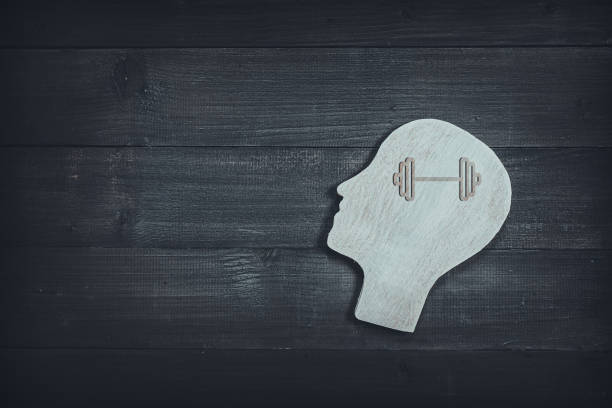Introduction: The Power of Exercise for Mental Health in Men
Exercise is often linked to physical benefits such as weight loss, muscle growth, and improved heart health. However, it also plays a crucial role in enhancing mental health, particularly for men.
Men’s mental health is sometimes not discussed enough, which is why it’s important to recognize the positive impact that physical activity can have on emotional well-being. Whether you’re dealing with stress, anxiety, or even depression, regular exercise can improve mood, boost energy, and reduce negative thinking patterns.
In this blog post, we will dive into the powerful connection between exercise and mental health in men. We’ll explore how staying active can help improve mental clarity, build emotional strength, and promote overall well-being. With the right fitness routine, men can experience a significant boost in mental health, alongside their physical health.

The Link Between Exercise and Mental Health in Men
Exercise provides a variety of physical health benefits, but its positive impact on mental health is just as important. Research and scientific studies consistently highlight that regular physical activity can help alleviate the symptoms of mental health issues such as anxiety, depression, and stress. Engaging in exercise not only strengthens the body but also supports emotional well-being, offering a natural way to improve mood and mental clarity. Whether it’s through boosting endorphins or helping to manage stress levels, staying active plays a key role in maintaining both physical and mental health.
1. Exercise Reduces Stress and Anxiety
One of the most powerful mental health benefits of exercise is its ability to reduce stress and anxiety. When you engage in physical activity, your body releases endorphins—natural chemicals that boost your mood and ease feelings of tension.
Endorphins act as natural pain relievers and mood enhancers, helping to combat stress and anxiety by promoting a sense of well-being. In addition to this, exercise helps lower cortisol levels, a hormone that is closely linked to stress.
Whether you’re running, practicing yoga, or lifting weights, any form of exercise can activate your body’s natural stress-relief mechanisms, leaving you feeling more relaxed and at ease. Regular physical activity is an excellent way to manage stress and improve overall mental health, making it a powerful tool for staying calm and centered.
2. Exercise Boosts Mood and Helps Fight Depression
For men struggling with depression, exercise can be a crucial part of the treatment process. Regular physical activity helps boost serotonin levels in the brain, a neurotransmitter that plays an important role in regulating mood and emotional well-being.
Research has shown that moderate exercise, like walking, swimming, or biking, can have effects similar to those of antidepressant medications. While exercise alone may not be enough to fully treat clinical depression, it can greatly enhance the effectiveness of other treatments, such as therapy or medication.
In addition to improving mood, regular physical activity can provide a sense of accomplishment, helping to break negative thought patterns often linked to depression. Exercise also helps improve sleep by regulating sleep patterns, which is essential for maintaining good mental health and managing depression. By making exercise a regular part of daily life, men can support both their mental and physical health.
3. Physical Fitness Improves Self-Esteem and Body Image
Men often face societal pressure to appear strong, confident, and attractive. Exercise can play a key role in boosting self-esteem by enhancing physical appearance and providing a sense of accomplishment.
Strength training and other forms of exercise help improve body composition, leading to better confidence in one’s appearance. As men see positive changes in their physique, it can lead to a more positive self-image and greater pride in their progress.
Tracking progress is also important: noticing improvements in strength, endurance, or flexibility can significantly increase self-worth and overall satisfaction. For many men, feeling good about their physical appearance often leads to better mental well-being, creating a healthy cycle of fitness and confidence. Regular exercise not only strengthens the body but also enhances mental and emotional strength, making it a vital part of maintaining a positive mindset.
4. Regular Exercise Enhances Cognitive Function
Physical activity doesn’t just build a stronger body—it also supports a healthier brain. Research shows that regular exercise boosts brain health by increasing blood flow to the brain, which helps improve memory, focus, and problem-solving skills.
Aerobic exercises like running, swimming, or cycling are especially helpful in improving brain plasticity and cognitive performance. These activities keep the brain active and support better thinking and learning.
Memory improvement is another key benefit. Exercise stimulates the production of brain-derived neurotrophic factor (BDNF), a protein that helps protect and grow brain cells.
This boost in mental sharpness can positively affect many areas of a man’s life, from work performance to personal relationships. Better focus and clearer thinking can lead to improved decision-making, increased productivity, and greater confidence throughout the day.

Types of Exercise That Support Mental Health
Not all exercise is created equal when it comes to mental health benefits. Some forms of physical activity are particularly effective at improving mood and reducing symptoms of mental illness.
1. Cardiovascular Exercise (Aerobic)
Cardiovascular exercise, such as running, cycling, or swimming, is one of the best ways to enhance mental well-being. This type of exercise raises heart rate and increases oxygen flow to the brain, improving overall mood.
- Endorphin release: Cardiovascular exercises trigger the release of endorphins, which can improve mood and reduce anxiety.
- Improved heart health: Regular aerobic exercise can help regulate stress and prevent the negative physical effects of stress, such as heart disease.
2. Strength Training
Strength training exercises, like lifting weights, help build muscle and enhance physical strength. But beyond the physical benefits, strength training can boost mental resilience and reduce symptoms of anxiety and depression.
- Self-efficacy: The sense of accomplishment after completing a strength training session can positively impact mental health.
- Stress reduction: Lifting weights helps combat the physical effects of stress by strengthening the body’s stress response systems.
3. Yoga and Mindfulness-Based Exercise
Yoga is a mind-body practice that combines physical movement, breathing exercises, and meditation. Yoga and other mindfulness-based exercises are particularly beneficial for mental health because they help calm the mind, reduce stress, and improve emotional regulation.
- Stress relief: Yoga has been shown to reduce the physical and mental effects of stress, making it ideal for managing anxiety.
- Improved mood: Regular practice can increase levels of serotonin, helping to lift your mood and combat depression.
4. Team Sports
Participating in team sports, such as basketball, soccer, or even recreational sports leagues, can offer mental health benefits as well. These activities provide both physical exercise and social interaction, which are essential for emotional well-being.
- Social connection: Engaging with teammates fosters a sense of community and reduces feelings of loneliness.
- Competition: Healthy competition can improve self-esteem and confidence.
How to Make Exercise Part of Your Mental Health Routine
Adding exercise to your daily or weekly routine doesn’t have to be difficult. You don’t need a gym membership or fancy equipment to get moving. Here are a few simple tips to help you start and stay on track with your fitness goals:
1. Set Realistic Goals
Begin with small, realistic fitness goals and slowly increase the intensity as your body gets used to regular exercise. Taking it step by step helps you stay motivated, build confidence, and reduce the risk of burnout or injury.
2. Choose an Activity You Enjoy
Exercise should be something you look forward to! Whether it’s hiking in nature, shooting hoops with friends, dancing, or trying out a yoga class, choose an activity that you truly enjoy. When you have fun while being active, it becomes easier to stay consistent and make fitness a regular part of your lifestyle. The more you enjoy it, the more likely you are to keep going.
3. Mix It Up
Variety is important for staying motivated and avoiding boredom with your workouts. Mixing up your routine with different types of exercises—like cardio, strength training, stretching, or sports—can keep things fresh and exciting. It also helps you work on different parts of your fitness, such as endurance, strength, and flexibility. Trying new activities can make exercise more enjoyable and help you stay on track long-term.
4. Prioritize Consistency
Consistency is the key to unlocking the mental health benefits of exercise. Try to get at least 30 minutes of moderate physical activity on most days of the week. This could be anything from walking and biking to dancing or playing a sport. The type of exercise doesn’t matter as much as staying active regularly. The more consistent you are, the more likely you’ll see lasting improvements in your mood, energy, and overall mental well-being.

Conclusion: Exercise as a Path to Better Mental Health for Men
The connection between exercise and mental health in men is undeniable. From boosting mood to reducing stress and improving cognitive function, regular physical activity can play a vital role in maintaining mental well-being.
Whether you’re new to fitness or a seasoned athlete, the mental health benefits of exercise are accessible to everyone. By making exercise a regular part of your life, you can improve your emotional resilience, boost your confidence, and reduce the symptoms of anxiety and depression.
Start small, stay consistent, and enjoy the numerous mental health benefits that come with taking care of your body. Remember, your mind and body are interconnected—taking care of one helps the other thrive!

